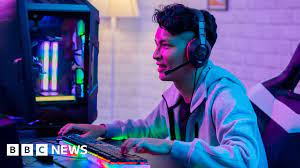The National Press and Publication Administration (NPPA) had proposed regulations limiting the amount of money and time people spent playing video games.
On Tuesday, however, the NPPA website no longer contained the draft rules.
Although China has the largest online gaming market in the world, there have been many incidents involving the industry and the government.
In-game purchases would have been restricted by the new regulations. Gamers’ daily log-in rewards and other incentives would have drawn criticism, and a pop-up alert alerting users to “irrational” behavior was suggested instead.
Following the apparent U-turn, the stock values of Chinese gaming companies, such as Tencent Holdings, the largest gaming company in the world, and its competitor NetEase, surged.
After the regulations were first put forth in December, they had collapsed, devaluing the two businesses by almost $80 billion (£63 billion).
Analysts claim that the industry is still hampered by a lack of clarity regarding potential government actions.
“I think this type of sentiment will probably last for quite some time, unless we get a very drastic turnaround in government rhetoric, or unless we get some super supportive policies,” Ivan Su, a senior analyst at Morningstar, said.
“We don’t know if it’s going to happen in a week, in a couple months, or in a couple of years.”
The biggest anti-gaming campaign in China began in 2021 when kids were prohibited from playing for longer than an hour on specific days.
The government suspended the issuance of gaming licenses for eight months in that same year.
“A lot of Chinese developers have started shifting their development pipeline toward overseas games,” claims Mr. Su as a result.
Companies from France, Japan, and the US were bought out or invested in by NetEase and Tencent.
It’s unclear if the present unpredictability will lead to yet another round of foreign expansion.







